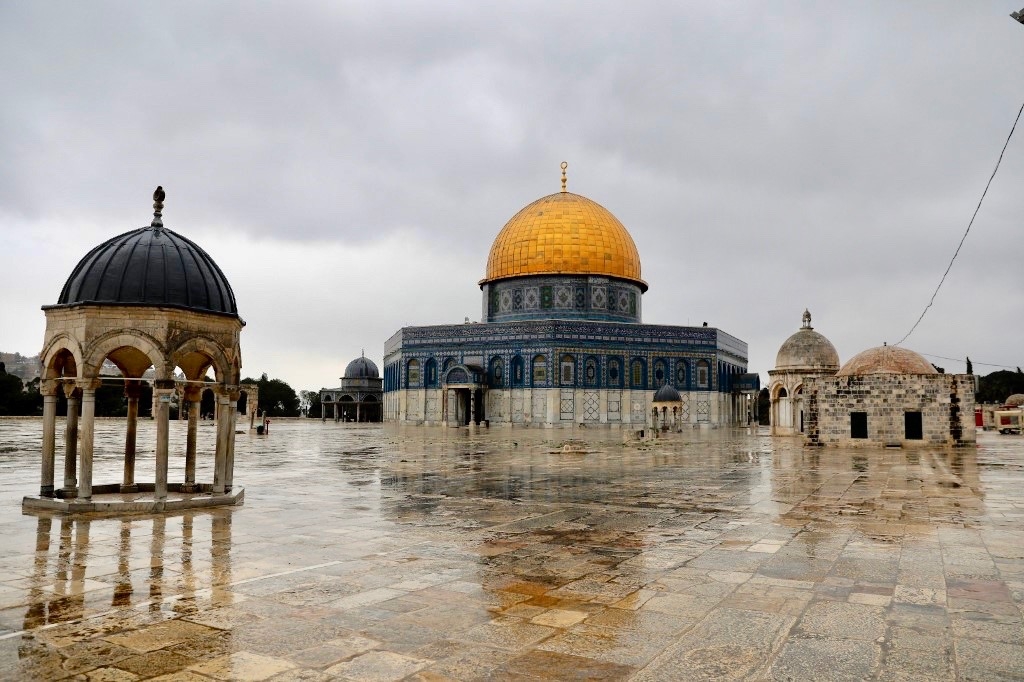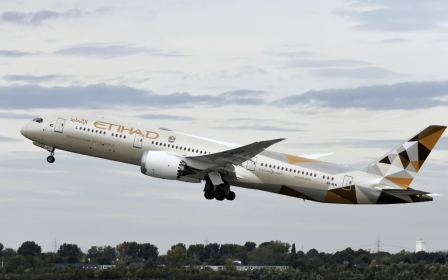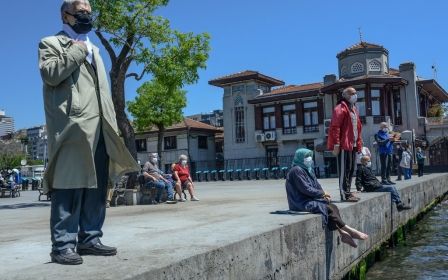Coronavirus: Jerusalem's Al-Aqsa Mosque to reopen after Eid al-Fitr holiday

Jerusalem's Al-Aqsa Mosque will reopen to worshippers after the Eid holiday period, the house of worship's governing body said on Tuesday, two months after it was closed due to the coronavirus pandemic.
"The council decided to lift the suspension on worshippers entering the blessed Al-Aqsa Mosque after the Eid al-Fitr holiday," a statement from the Waqf organisation said, referring to the three-day holiday expected to run from 24-26 May.
Omar al-Kiswani, director of the mosque, told the AFP news agency that he hoped for no restrictions on the number of worshippers allowed inside, but added that the governing body would announce the exact measures at a later point.
The details would be worked out to "ensure we are not subjected to criticism on the pretext we have broken health rules", Kiswani said.
Islam's third holiest site was closed in late March for the first time in more than half a century as part of measures to curb the spread of the novel coronavirus, which has infected nearly five million people across the world, including more than 300,000 deaths.
Both Israel and the Palestinian territories have eased restrictions over the past few days as Covid-19 infections continue to decline.
Israel has recorded roughly 16,650 coronavirus infections, including 277 deaths, while in the Palestinian territories, fewer than 400 cases have been confirmed.
Beaches in Israel are due to reopen beginning on Wednesday, with restaurants and bars to follow from 27 May.
The Al-Aqsa Mosque compound, which lies in Jerusalem's Old City, has long been a flashpoint in the Israeli-Palestinian conflict.
The mosque compound is under the custodianship of neighbouring Jordan which controlled the West Bank, including East Jerusalem, until its occupation by Israel in the Six-Day War of 1967.
The custodianship of the mosque complex has been speculated to be switching hands, possibly to Saudi Arabia as a part of the Trump administration's plan for the Israeli-Palestinian conflict.
Middle East Eye delivers independent and unrivalled coverage and analysis of the Middle East, North Africa and beyond. To learn more about republishing this content and the associated fees, please fill out this form. More about MEE can be found here.





